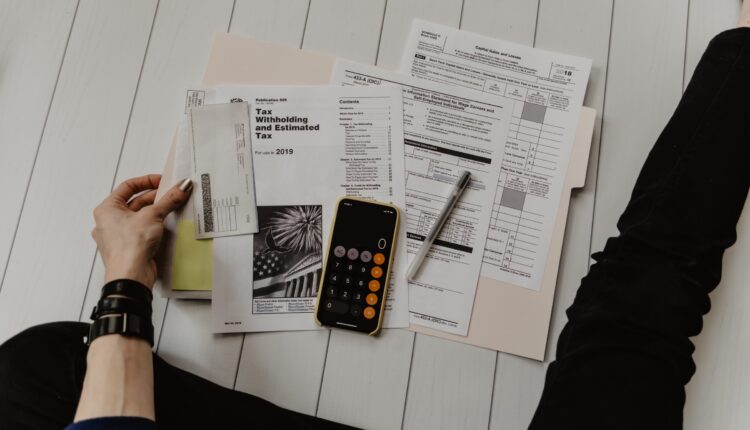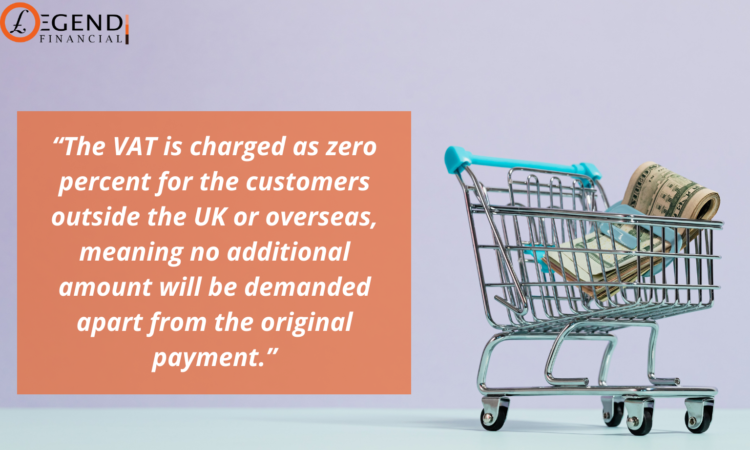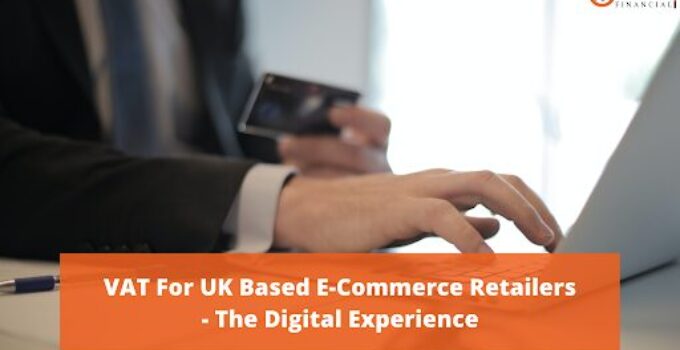Either you are selling goods on the ground, or online VAT plays its role in both perspectives. In this digital era, there are many online platforms such as Amazon that allow to sell and purchase goods in a similar fashion as someone would do in a physical market. Of course, VAT is not associated with online or on-ground instead. It is associated with the twenty percent tax that the government demands while making the purchase process possible.
Page Contents
“It is associated with the twenty percent tax that the government demands while making the purchase process possible.”

Source: unsplash.com
So, if you are purchasing your goods online via any platform, you will be concerned about VAT. Whether your customers are from within the UK or outside, VAT applies to all of them. Charging VAT on different goods provided by UK-based e-commerce business limited companies or any sole traders was never easy before. Goods are individually supplied to the customers.
A specific term is used for this process, i.e., B2C, which implies that goods are transferred from business to business inside the UK or overseas. The transfer can be made directly or via an online platform like amazon that as previously mentioned. VAT is charged on every item being translocated.
”Charging VAT on different goods provided by UK-based e-commerce business limited companies or any sole traders was never easy before.”

Goods are mainly transferred within UK, European Union and Rest of the world which you can consider overseas to the UK. All the transfers are zero percent rate from 2024. Let’s figure this scenario with an example.
XYZ limited company is a VAT-registered e-commerce business rooted in the UK. The company manufactures biodegradable plastic bottles and supplies them in the UK and overseas. In the respective month, XYZ limited company sold 1000 bottles to UK-based customers. As the bottles were displaced within the UK, a standard rate was applicable to them, meaning twenty percent of the entire purchase was VAT.
The VAT is charged as zero percent for the customers outside the UK or overseas, meaning no additional amount will be demanded apart from the original payment. A complete input of details is necessary on each invoice. Each invoice should follow a unique invoice number followed up by the percentage of VAT applying to them. You must have to mention the used portion, even if it is zero percent.
The company dealing with all the input should be VAT registered if it’s not selling its product via an online platform such as in the above case, the XYZ limited company was dealing with its client through its website, like xyz.com. The website should cross-check the VAT applicable on each purchase and is questionable for each tiny detail.
While declaring the tax to the HMRC, the XYZ limited company must mention each detail on their VAT returns regarding the overseas customers as well as within the UK customers. The output VAT should be free of any error. HMRC will demand a specific amount of tax from your e-commerce company, and the persons dealing in your company should be aware of the minute details required to input in the VAT returns.
Another important thing that should be mentioned over here is a minor touch-up of destination VAT. The goods being shipped by the European Union customers apply destination VAT. Destination VAT is the VAT levied in the destined country of the customer and goods being sold.
It does not apply to all goods which means you need to keep a track of CGST exemptions. Instead, it applies to certain goods only. The basic principle of this concept is to retain VAT from the country in which goods are transported.
“Destination VAT is the VAT levied in the destined country of the customer and goods being sold.”

This concept can again be elaborated with an example. Let’s suppose a customer from Germany purchases biodegradable plastic bottles from the XYZ limited company while sitting in his home through XYZ’s little company website. The standard VAT rate in Germany is nineteen percent. The overall purchase was £100 sterling. First of all, this £100 sterling is converted into Euros. The exchange rate comes out to be 1.2. One hundred twenty euros plus the nineteen percent German VAT comes out to be €142.80 on biodegradable plastic bottles. The customer has to pay €22.80 in Germans VAT to XYZ limited company.
To make your online marketplace open to customers outside the UK, you must register your company in those countries for VAT purposes. In the above case, you need to register your biodegradable plastic bottle manufacturing company for VAT in Germany to facilitate the customers over there. It’s a big game the more versatile customer your company wants to deal with, the more places you have to consider for registering your online company.
From 1st July 2024, the destination VAT will be due on all the sales. So if you are looking to ship your goods throughout the world, be prepared for VAT registration in different countries. It is how you will get a chance to explore other customers at the same time and make your business even more flourished.
But the most exciting thing is you can’t escape from the hands of HMRC. You have to admit all of the detail in your VAT return that you will be submitting to HMRC. This digital era allows you to send reactive goods via an online platform. It also lets you go through your standard taxation services similarly but with a refined touch.
“This digital era allows you to send reactive goods via an online platform.”

It’s always good to know the figures you have to pay as a tax and receive by selling your goods from your customer. Mathematics should be at your fingertips, but now e-commerce has made many things easy. Up to the mark still, it needs accountants’ involvement because there are many ways to avoid VAT either being zero-rated or through different schemes. A lot more schemes have been introduced to make understanding possible.
Playing business games overseas requires a lot more because you are entrapped between the influences of both countries’ tax systems, just like an overseas tax on capital gains. It would be best if you learned more before dealing with things for foreigners. If you have concerns or questions that were not answered in the article, feel free to send a message to our financial experts at Legend Financial.





